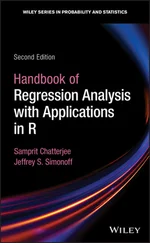I felt beforehand that I would be self-conscious. This turned out to be the case. I couldn’t speak. I was terribly uncomfortable at the concert. The more I tried to relax, the more self-conscious I became, until it became almost unbearable. When we left… I was near collapse. Of course, she [Adele] must have noticed that something was wrong. The first two times that we met I had the good fortune of having had several drinks beforehand. Alcohol is usually very helpful in subduing my consciousness.
I wonder what she [Adele] thought when my letter came. Her answer took a motherly and, at the same time, destructive attitude. I resent the motherly, and resent even more the fact that Adele believes she knows enough about me after such a short acquaintance to be able to call my way of life “moral tragedy.”
Whether it really is or not is not the important question. In my letter, I tried my best to stem mounting anger. I fear that she will not write again. Although I hope against hope that she will. I need desperately to write to someone other than my sister and mother. The familiarity of what they say in every letter is becoming monotonous and is not in the least helpful. I am always disappointed when the letters I receive bear the familiar writing of my father’s or Evelyn’s green ink. And yet, I need their letters desperately.
In another entry, dated February 1, 1955, Felix further described his “self-consciousness” in social settings.
“A dream about dignity, it escapes me,” the notation begins. “The past few days I have been unable to concentrate on my dreams upon awakening although I know that I have dreamt. All the officers went to a dance tonight. I wanted to go, but knew that the evening would have been painful.”
Two weeks later, on February 15, Felix wrote again of his social anxiety. This time, it prevented him from attending a surprise party being thrown for the captain of his naval unit. According to the notation, Felix had accepted an offer by a friend named Dean to get him a date for the winter affair, knowing full well that he would not attend the event.
“This evening I told Dean with a smile that I would not be able to come,” Felix wrote. “I told him that there was an important reason, and he of course, misunderstood me.
“How can I tell anyone what the real reason is? Can I say to my friend, ‘Sorry, Dean, I cannot go because of my self-consciousness.’ It would make me utterly miserable. The girl would think I was crazy. I would have to laugh, and it would simply be too painful for me. This is what I would have had to say. How impossible my existence is.”
Felix also wrote about a letter he sent to his older sister, Evelyn, in which he tried to explain his state of being.
In this letter, I expressed what has long been turned over in my mind, i.e., the anger and guilt which I direct towards my parents for having made me what I am, a helpless, utterly self-conscious and miserable individual.
Instead of the closeness I once felt for my parents, there is now anger and resentment. The guilt, which I once felt for their sake, I have emplanted [sic] in them. Mother’s letters now leave me with a cruel kind of coldness. In the letter, I announced my determination to sever, although not entirely, relations with Harrison [Felix’s hometown in New York].
Perhaps this sounds dramatic, yet it must be so. I also told EV [Evelyn] that I felt myself to be basically a simple individual who has by accident had a complex personality thrown on his rather weak body. And this is exactly my feeling. The simplicity and sometimes naivitee [sic] of my desires, thoughts and pleasures are a violent contrast to the complexity of my psychic structure. It is as if my psychic existence and my true nature were two separate entities joined by a foolish or blind will. Where I asked to choose between discarding my simplicity and my personality, there would not really be a choice.
At twenty-three, Felix was slowly coming apart, yet, his silent suffering only magnified his problems. He had never dealt with the psychological trauma he suffered as a young boy in war-torn Europe. There was much secrecy surrounding the horrific crimes of World War II, and there was no counseling available to the tens of thousands of victims. Those lucky enough to have survived received no special treatment.
Everybody was expected to go on. And outwardly, most did.
In September of 1955, the navy transferred Felix back to a base in Brooklyn, New York, for shore duty. He was unhappy with the assignment and unhappy to be back home. His only consolation was that he could resume therapy with Dr. Goldstein. According to the doctor’s records later obtained by the U.S. Navy, Felix attended ten sessions with the psychiatrist. The psychiatrist recorded that he was “agitated,” “depressed,” and “concerned over sexual problems,” “lacked an interest in a career,” and “was preoccupied with philosophical and cosmic concepts.”
A sexual history complied by Dr. Goldstein during his sessions with Felix disclosed that Felix began masturbating at the age of twelve, but “masturbated with guilt” and “felt confused regarding sexual facts until fifteen years of age.” He began dating at sixteen, and by the age of twenty, was involved in a relationship with a well-to-do aspiring actress. We’ll call her Fannie.
Felix’s guilt over masturbation and confusion over sexual gender were not remarkable since about 50 percent of American males reportedly experience those same feelings, according to experts. What was unusual was that, since puberty, Felix had been obsessed with his sister, Evelyn.
“Incestuous fantasies involving his older sister have preoccupied him since adolescence,” Dr. Goldstein noted in his official report.
It is interesting that Evelyn was fifteen when Felix began to fantasize about her—the same age that Susan was when she first went to see him in 1972.
On Friday, October 14, 1955, Felix met with Dr. Goldstein but his session did not appear to lift his spirits, and the following day, he felt no better. While torrential rainfall and high winds only added to his gloom, he had a date that night in Manhattan, so he forced himself to get dressed, pack a bag, and make the forty-mile drive to the city.
It was 5:30 PM when Felix met Fannie for their date. Although he wasn’t in love with her, he enjoyed her company. She put him at ease and allowed him to be himself. He had gotten tickets to La Ronde, a performance based on the 1897 play Der Reigen (Hands Around) by Austrian writer Arthur Schnitzler. The story begins with the seduction of a soldier by a prostitute, who transmits syphilis during their encounter. The disease is then passed on to each subsequent and interconnected character in subsequent acts until it finally reaches the Count who, in the end, makes love to the prostitute from the first scene, thus closing the circle. The play was still considered somewhat risqué and had sparked outrage when it was first performed in Germany in the early part of the twentieth century. It had been labeled “obscene,” and for a time, was banned from the theater.
As the performance progressed, Felix confided to Fannie that he was seeing a psychiatrist and had an appointment the previous day. Fannie noticed that he seemed more glib than his usual somber self. During his previous visit to New York, he had confided his unhappiness at home—due, primarily, to his relationship with his mother. Now, he seemed more displeased with his naval assignment to Brooklyn and expressed his desire to be stationed somewhere in Europe.
Smiling, Felix turned to Fannie and announced that he had contemplated suicide.
Staring back, Fannie giggled. He couldn’t be serious, she thought, he was grinning when he made the pronouncement.
Читать дальше











